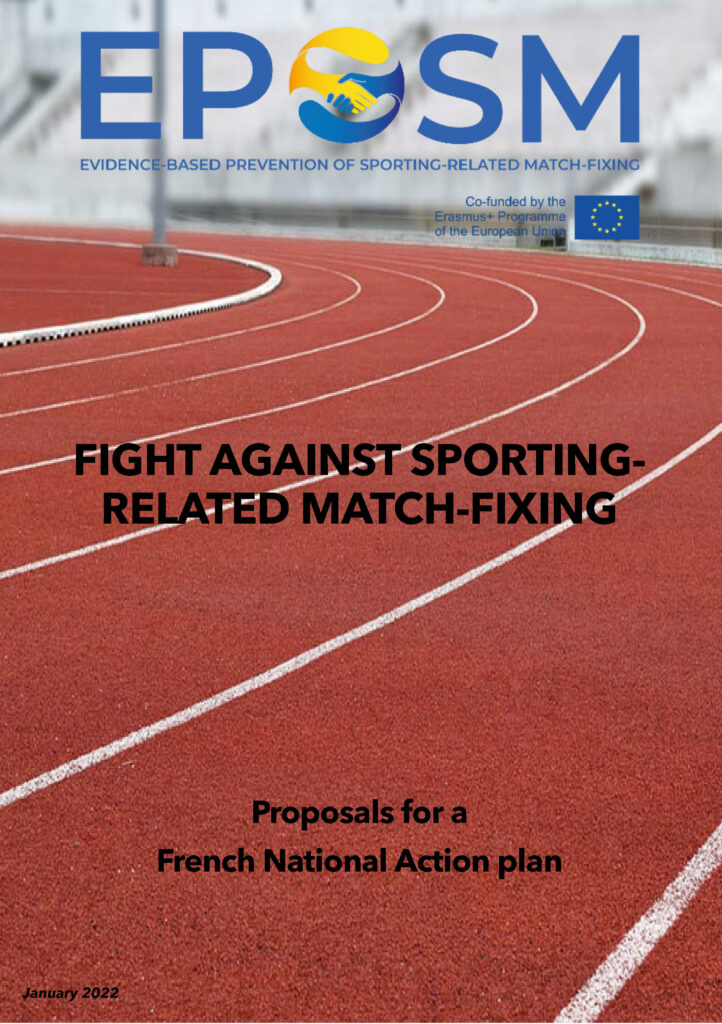Notes / Sport and Geopolitics
16 March 2022
Fight against sporting-related match-fixing. Proposals for a French National Action Plan

The manipulation of sports competitions is a complex, transnational and multi-faceted threat to the integrity of sport. In recent years, several scandals have particularly agitated the sports news: Calciopoli, Calcioscommesse, or Bochum.
With their media coverage, the understanding of the stakes linked to manipulations of sport and the increase of financial stakes, this scourge has finally appeared as a real threat in the sports field since the turn of the 2010s. Affected by these scandals, federations and clubs have been obliged to react and to deploy an arsenal of important measures to prevent, train, raise awareness and if necessary, punish.
However, sport stakeholders do not give the same attention and same investment to all types of manipulations. Indeed, if clubs, federations, leagues or even unions have been able to develop over the past decade solutions to prevent match fixing linked to sport betting, notably because of the risks (legal, financial, criminal, reputational, etc.) that they ran, it is clear that manipulations linked to sports stakes appear to be a more marginal concern. Yet, this form of match-fixing appears to be particularly important because it involves notions of ethics and moral commitment that are essential in sport. Indeed, it is by consolidating these bases and stimulating moral judgment that other integrity breaches could be avoided.
However, several exploratory studies have shown the importance of this phenomenon, which has been ignored for too long in the sports world. In 2019, the University of Ghent conducted a pioneering study on the subject. In order to confirm the result and to have a European point of view, Ghent University decided to launch an Erasmus + project. You will find below in this report the results. At the end of this document, you will also find few recommendations headed for French sport stakeholders. Three special focuses will be made on football, tennis and handball.
